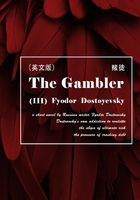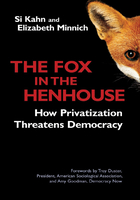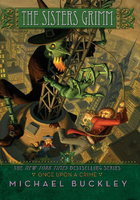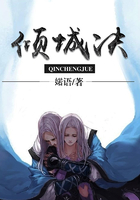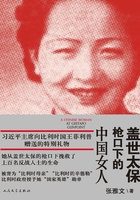IT IS RARE WHEN A BOOK ABOUT OUR EARLY REPUBLIC IS RELEVANT forty years after it was originally published. It is rarer still when that book provides insight into national problems we refuse to solve two centuries later.
You are therefore holding in your hands (or reading on your pad or computer) one of the most important books you will ever encounter. Here is why: Unlike other histories of this era, this book is written from a revolutionary perspective much like Jefferson's generation viewed the world.
The American Revolution of 1800 was not just about an election. It was about a life-and-death struggle for power between democratic-republican principles and oligarchic-plutocratic values based on corruption. In short, this book, by implication, is about the identical crisis America faces today.
The author's unique analysis is based on the idea of faction controlling party and how both undermine constitutional government. In an age where modern parties and the factions that control them have paralyzed our government, this book validates the politics of the Founders.
In still another contribution, the book demonstrates how preserving revolutionary ideas within our culture depends on understanding the classical tradition. The ability to recognize a demagogue is rooted deeply in the role Caesar played in destroying the republic of ancient Rome. That fear of a Caesar inspired Jefferson and others to organize citizens against the Federalists, thereby completely contradicting the political rules of their time.
The book, above all, presents a profoundly positive view of Jefferson and his creativity in the midst of crisis. It celebrates his gift-twenty-four years after he wrote the Declaration of Independence-and proves he never abandoned his principles or his revolutionary vision for America's future.
Ironically, it has become a cliché in political and economic circles that while we love Thomas Jefferson, we live in a country largely run by Alexander Hamilton's policies and John Adams's politics.
This may have been more true of the roughly two hundred years before the contemporary "free-trade" era, beginning in the 1970s under Richard Nixon and exploding in the mid-1990s, when Bill Clinton signed the North American Free Trade Agreement and the General Agreement on Tariffs and Trade. (Alexander Hamilton must be rolling over in his grave.) Nevertheless we have become a mercantilist nation dominated by banks and big industries, as Hamilton envisioned.
It is true that there were huge differences between Hamilton and Jefferson, particularly in their visions for the future of America and its economy, and those divisions tend to dominate interpretations of our political discussion when we reference the era of our first few presidents.
But a much larger and more dramatic battle of worldviews played out in the late 1790s between President John Adams and Vice President Thomas Jefferson, leading directly to what is arguably the most transformational presidential election in American history: the election of 1800.
In other books and places, both Dan Sisson and I have written at some length about the differences between these two men and their respective visions of America. Adams relished throwing newspaper editors in prison and demanded that when he and his wife visited a town the local militia come out to fire their cannons in salute of him and shout: "God save President Adams!"
Jefferson was so horrified by Adams's Alien and Sedition Acts that he left town the day they were signed into law, and, as president, often wore simple homespun garments. He was known to answer the front door of the White House in his bathrobe, and more than one visitor mistook him for a servant. As president, Jefferson literally acted out his egalitarian vision of America.
In my book The Crash of 2016: The Plot to Destroy America-and What We Can Do to Stop It, I described Jefferson's concern about aristocracy in American politics. On October 28, 1813, in a letter to his old rival John Adams, Jefferson commented on his distrust of America's growing wealthy elite-naming in particular the Senate, which was not democratically elected by the people.
Referring to the "cabal in the Senate of the United States," Jefferson wrote, "You [John Adams] think it best to put the Pseudo-aristoi into a separate chamber of legislation [the Senate], where they may be hindered from doing mischief by their coordinate branches, and where, also, they may be a protection to wealth against the agrarian and plundering enterprises of the majority of the people."[1]
Then Jefferson countered in the letter, writing, "I [do not] believe them [the Senate] necessary to protect the wealthy; because enough of these will find their way into every branch of the legislation, to protect themselves."
Instead, Jefferson, wrote, "I think the best remedy is exactly that provided by all our constitutions, to leave to the citizens the free election…In general they will elect the really good and wise. In some instances, wealth may corrupt, and birth blind them; but not in sufficient degree to endanger the society."
And in a final warning about the largely Federalist "cabal in the Senate," Jefferson wrote, "The artificial aristocracy is a mischievous ingredient in government, and provision should be made to prevent its ascendancy.…I think that to give them power in order to prevent them from doing mischief, is arming them for it, and increasing instead of remedying the evil."
In a 1786 letter to George Washington, Jefferson gave his most explicit warning about this threat of a military allied with a plutocracy within and advocated for unwavering vigilance against it: "Tho' the day may be at some distance, beyond the reach of our lives perhaps, yet it will certainly come," he wrote, "when, a single fibre left of this institution, will produce an hereditary aristocracy which will change the form of our governments from the best to the worst in the world."[2]
He added, "I shall think little [of the] longevity [of our nation] unless this germ of destruction be taken out." It was not until 1913 that Americans became so disgusted by politicians dancing to the tune of state-level rich people essentially "buying" Senate appointments that the Seventeenth Amendment to the Constitution was passed to provide for the direct election of senators by the people themselves. More recently, the Supreme Court's Citizens United v. Federal Election Commission and McCutcheon v. Federal Election Commission decisions have reinstated the ability of wealthy and powerful people to buy members of Congress and, by implication, our government.
In broad strokes these are the ideas that should occupy most political histories published these days-and especially any discussions about the era around the election and the Revolution of 1800. Unfortunately, the two most popular biographies of Adams and Jefferson published in the past fourteen years do not mention Jefferson's Revolution of 1800-not even once! Thus after forty years, the story of the final completion of the American Revolution, and by Jefferson's own words one of his chief contributions to America and the world, remains a little-known story.
THE REAL CONCERNS OF THE FOUNDERS
While it is true that many modern historians mean well, all too many have missed or failed to focus on the most important differences and similarities between that time and now.
If Jefferson, or even Hamilton or Adams, were to witness the political gridlock extant in today's state and national capitols, they would be horrified. James Madison, perhaps, would be the most outraged, as he left us such an eloquent warning about the politics of faction in his Federalist No. 10. It opens with the following two sentences: "Among the numerous advantages promised by a well constructed Union, none deserves to be more accurately developed than its tendency to break and control the violence of faction. The friend of popular governments never finds himself so much alarmed for their character and fate, as when he contemplates their propensity to this dangerous vice."
But what is "faction"?
In our modern era, the word faction is often dismissed as an anachronism or simply interpreted to mean a "political party." But James Madison, the Framer of our Constitution, and his contemporaries understood well the distinction between factions and political parties. And with that understanding, they would be shocked by how differently contemporary politics are interpreted today from similar events experienced by our Founders.
During that period the Framers saw faction and party paralyzing and then destroying governments-especially republics throughout history. As a consequence Jefferson suggested that "every generation" should have its own smaller form of revolution, reconfiguring the nation and its government to adapt to changing needs and changing times.
Jefferson wrote to his protégé, James Madison, the year the Constitution was ratified and our modern nation birthed: "The question, whether one generation of men has a right to bind another…is a question of such consequences as not only to merit decision, but place also among the fundamental principles of every government."[3]
No single generation, he wrote, has the right to saddle the next with a devastated commons [and/or environment], and it should be obvious "that no such obligation can be transmitted" from generation to generation.
Laying out his thinking on the issue, Jefferson continued: "I set out on this ground, which I suppose to be self evident, that the earth belongs in usufruct [common ownership] to the living; that the dead have neither powers nor rights over it. The portion occupied by any individual ceases to be his when himself ceases to be, and reverts to the society."
Jefferson's logic that no person or generation should be able to bind the next one was one of his core beliefs throughout his life. He added, "For if he could, he might during his own life, eat up the usufruct [commons] of the lands for several generations to come, and then the lands would belong to the dead, and not to the living, which is the reverse of our principle."
THEY WERE REVOLUTIONARIES!
But what was most revolutionary about Jefferson's thinking on this was the idea of generational revolutions-that the nation itself must fundamentally change roughly once every biological or epochal generation-and even that would not prevent larger periodic political transformations of the nation.
These were, he believed, not just ideals but a basic force of nature. He wrote,
On similar ground it may be proved, that no society can make a perpetual constitution, or even a perpetual law. The earth belongs always to the living generation: they may manage it, then, and what proceeds from it, as they please, during their usufruct [shared ownership].
They are masters, too, of their own persons, and consequently may govern them as they please. But persons and property make the sum of the objects of government. The constitution and the laws of their predecessors are extinguished then, in their natural course, with those whose will gave them being.
Jefferson believed that even the laws enshrined in our Constitution came with a time limit and that once the generation that wrote those laws passed on out of power, those laws must be rewritten by the new generation or at least every second generation: "Every constitution, then, and every law, naturally expires at the end of thirty-four years," Jefferson wrote. "If it be enforced longer, it is an act of force, and not of right. It may be said, that the succeeding generation exercising, in fact, the power of repeal, this leaves them as free as if the constitution or law had been expressly limited to thirty-four years only."
A revolution every twenty to thirty-four years? Could Jefferson have actually been proposing-or predicting-that?
In fact, yes.
And this is where Dan Sisson does such a brilliant job of showing how that old revolutionary, Thomas Jefferson-the guy who, as a young man in his thirties, had put pen to paper and triggered the American Revolution-fomented, as that much older and wiser man, a second American revolution a generation after the War of Independence.
This "second American revolution" was carried out in 1800, when Jefferson openly challenged the conservative, Federalist direction in which John Adams and his cronies had been leading America. Jefferson, then Adams's vice president, decided to fight Adams for the presidency. It was a brutal and hard-fought battle, but ultimately Jefferson won.
His victory fundamentally transformed America, and if we hope to maintain any fidelity to our founding principles, to American history, and to the ideals of a constitutionally limited democratic republic, it is essential that we understand what led up to the Revolution of 1800, how it played out, and how it left this country permanently changed.
Read on-and prepare to have your view of America altered forever.
Thom Hartmann
Washington, DC

